The Best Goat Milk Formula For Babies (2025 Guide)
This post may contain affiliate links. As an Amazon Associate, I earn from qualifying purchases. Please read my disclosure.As a certified nutritionist, health coach, and mom of two, I’ve spent over a decade researching infant nutrition and evaluating formulas. I know that choosing the right baby formula can feel overwhelming, especially when you’re considering goat milk options!
My comprehensive guide reflects my experience and research: it’s your evidence-based, parent-friendly resource to help you decide whether goat milk formula is right for your baby, what to look for and what to avoid, and how to choose which brand is best for your family.

So many of you have come across my best organic baby formula post, and I’m so glad that post has been helpful! One of the most common questions I get when it comes to baby formula is: What about goat milk formula? Is it better than cow’s milk formula? And which one is the best?
And it’s no surprise – goat milk formulas are gaining popularity for a reason. They can be gentler on tiny tummies, are naturally rich in nutrients, and contain A2 milk proteins that may be easier to digest than the A1 proteins found in cow’s milk.
But not all formulas are created equal. That’s why I evaluated every goat milk formula available today, from Europe to the U.S., and created my recommended list of the best goat milk formulas based on ingredient quality, safety standards, digestibility, and real-world results from thousands of parents.
In this guide, you’ll learn:
- When goat milk formula might be a better choice than cow’s milk
- What makes a high-quality goat milk formula (and what to avoid)
- A detailed comparison of the best formulas available today
- Which brands I’d personally trust for my own kids
📝 My Review Process & A Quick Note Before We Dive In
As a nutritionist and board-certified health coach, I base all my recommendations on current scientific research, expert consultations, and my personal experience feeding two formula-fed babies. I have thoroughly vetted every product in this guide, both for ingredient quality and real-world performance. This post has also been medically reviewed and fact checked by Katie Drakeford, MA, RD, CSP, LD, CLC (see my about page for more info about Katie).
This post is for informational purposes only and should not replace medical advice. Every baby is unique, so be sure to speak with your pediatrician before starting or switching formulas. My recommendations are not a substitute for professional medical advice, diagnosis, or treatment.
Some links in this post are affiliate links, which means I may earn a small commission if you purchase through them, at no extra cost to you. I only recommend products I would personally use with my own children. Thank you for supporting this blog and helping me continue to provide science-backed guidance for families like yours!
🐐 What Is Goat Milk Formula?
Goat milk formula is infant formula made from goat’s milk instead of cow’s milk. It’s carefully modified to match the nutritional profile required for babies, including protein, fat, carbs, vitamins, and minerals, so it’s safe for newborns when labeled as an infant formula.
While regular goat milk naturally contains more casein and less lactose than cow milk, it still needs to be processed and fortified to meet your baby’s needs. That’s why the formulas in this guide are different from regular goat milk, they’re specifically designed for infants. (Infants shouldn’t be given regular goat milk or cow’s milk until after 12 months of age).
There are also toddler versions of goat milk formula, meant for children 12 months and up. These can be great for weaning or supplementing a toddler’s diet with extra healthy fats and nutrients, especially for toddlers who are pickier eaters.
I recommend checking labels carefully, because not all goat milk formulas are approved for infants. If you’re unsure, talk to your pediatrician to find the right fit for your baby’s age and digestion
🍼 What Are The Benefits Of Goat Milk Formula?
As a nutritionist and mom, I’ve found that goat milk formula can be a great option, especially for babies who struggle with digesting cow’s milk formula. While it’s not hypoallergenic, goat milk offers several unique benefits that can make it a better choice.
Here’s why some families use it:
- Easier digestion: Goat milk contains mostly A2 casein proteins, which may be gentler on the gut than the A1 proteins found in cow’s milk. It also forms a softer curd in the stomach, which some babies tolerate better.
- Naturally rich in prebiotics: Goat milk is high in oligosaccharides, prebiotics that support healthy gut bacteria, similar to what’s found in breast milk.
- Fewer digestive symptoms: Thanks to smaller fat globules and more medium-chain fatty acids, goat milk is easier to break down, which may reduce gas, spit-up, or constipation in some babies.
- Anti-inflammatory properties: The oligosaccharides in goat milk may also support a stronger immune response and reduce inflammation in the gut.
- Potential for fewer skin reactions: Some studies have found lower rates of eczema in babies fed goat milk formula compared to those on cow’s milk-based formulas.
It’s important to note: These benefits can vary from baby to baby. Goat milk formula isn’t a guaranteed fix, but for the right child, it can make a noticeable difference in digestion and overall comfort For even more details, check out my list of the top 10 benefits of goat milk formula for babies.
🥛 How Is Goat Milk Formula Different From Cow’s Milk Formula?
If your baby isn’t tolerating cow’s milk formula well, goat milk might offer a gentler alternative, but the two types of formula are actually quite similar in overall nutrition. The key differences come down to digestibility and how your baby’s body handles the proteins, fats, and sugars in each milk type.
Here’s how goat milk formula compares:
- A2 vs. A1 Proteins: Goat milk naturally contains more A2 beta-casein, a protein that’s often easier to digest and less likely to cause inflammation than the A1 beta-casein found in most cow’s milk.
- Fat Composition: Goat milk has smaller fat globules and more medium-chain fatty acids, both of which are easier for babies to break down and absorb. This also results in softer curd formation in the stomach, which may reduce discomfort, gas, or constipation in some babies.
- Lactose Content: Goat milk contains slightly less lactose than cow’s milk, which can be helpful for babies with mild lactose sensitivity (though not appropriate for babies with true lactose intolerance).
- Natural Nutrients: Goat milk is naturally rich in vitamin A, calcium, and essential fatty acids, though both goat and cow milk formulas are fortified to match ideal nutrition for infants, regardless of the milk source, so this isn’t a major difference.
- Taste & Texture: Goat milk formula tends to be creamier and mildly sweeter. Some babies love the taste, others may not!
One thing to keep in mind: While goat milk can be easier to digest for many babies, it’s not hypoallergenic and is still considered a dairy formula. Always check with your pediatrician before making a switch, especially if your baby has a diagnosed milk allergy or persistent digestive issues.
For more details on what the pros & cons are of goat milk vs. cow milk formula, check out my guide to goat milk formula vs. cow’s milk formula.
🤔 Is Goat Milk Formula Better For Babies?
In my experience as both a nutritionist and a mom, the short answer is: it depends. Goat milk formula can be a fantastic option for some babies, but it’s not automatically better than cow’s milk formula for everyone.
Here’s what I tell parents when they’re deciding between the two:
- Goat milk formula may be easier to digest for some babies due to its A2 proteins, smaller fat globules, and softer curd formation in the stomach.
- It can be a great alternative if your baby struggles with gas, constipation, or mild digestive discomfort on cow’s milk formula.
- It’s not hypoallergenic. Goat milk still contains dairy proteins and lactose. If your baby has a diagnosed cow’s milk protein allergy (CMPA) or true lactose intolerance, goat milk formula likely isn’t the right fit.
Some babies thrive on goat milk formula from day one. Others may not love the taste or may get constipated on it. And for babies who do well on cow’s milk formula, there’s usually no need to switch.
👉 Bottom line: There’s no universal “best” formula. It comes down to your baby’s individual needs and your pediatrician’s guidance. If cow’s milk formula isn’t working and you want a gentle, nutrient-rich alternative, goat milk formula might be worth trying.
⭐️ Ideal Goat’s Milk Formula Ingredients
As a mom who formula fed my own two kids, I know how overwhelming formula labels can be. But once you know what to look for, and what to avoid, it gets much easier to make a confident choice. Here are the ingredients I prioritize when evaluating goat milk baby formulas:
✅ Organic or Non-GMO Sourcing: Formulas made in the EU or New Zealand typically have stricter organic standards and better animal welfare practices. Holle, Jovie, and HiPP are excellent examples.
✅ Lactose as the Primary Carbohydrate: The main carbohydrate in breast milk is lactose, so I prioritize formulas that also only use lactose. It’s best to avoid added sugars like glucose syrup, corn syrup solids, or maltodextrin.
✅ Balanced Whey-to-Casein Ratio (Ideally 60:40): Goat milk naturally has more casein (about a 20:80 whey:casein ratio), which can be harder to digest. Brands that add extra whey (like Kendamil) make their formula easier on little tummies. Another alternative is for formula brands to add healthy fats and prebiotics, as Jovie does, to aid in smooth digestion despite the whey-to-casein ratio.
✅ Omega-3 & 6 Fatty Acids (DHA & ARA): These support brain and eye development. I look for cold-extracted or non-hexane-sourced DHA wherever possible.
✅ Prebiotics and/or Probiotics: Prebiotics help feed good gut bacteria. Ideally, probiotics are added as well, but you can also supplement with probiotics for formulas that don’t contain it, whereas it is much harder to supplement with prebiotics for infants.
✅ No Highly Processed Additives: I avoid formulas with carrageenan, synthetic preservatives, hexane-extracted ingredients, and soy protein isolate.
✅ Smooth Texture and Easy Mixing: Creamy, lump-free formulas are more palatable and easier to digest.
👉 Note: Some ingredients like palm oil or soy lecithin aren’t ideal but aren’t necessarily deal-breakers. If your formula meets most of the above and works well for your baby, that’s what matters most.
🚫 Ingredients To Avoid In Goat Milk Formula
Over the years, I’ve reviewed dozens of formulas and these are the ingredients I consistently recommend avoiding:
❌ Synthetic DHA & ARA: While DHA and ARA are important nutrients found in breast milk, many formulas use versions extracted with hexane, a chemical solvent. Look for formulas that use non-hexane or water-extracted sources instead.
❌ Genetically Modified Organisms (GMOs): Always look for formulas labeled non-GMO or certified organic, which ensures they’re free from genetically modified ingredients and pesticide residues like glyphosate.
❌ Carrageenan: This thickening agent is banned in Europe for use in infant formula due to its link to gut inflammation (source). Unfortunately, it’s still allowed in the U.S., so double-check labels if you’re buying domestic brands.
❌ Soy Protein Isolate: While soy oil is sometimes necessary, soy protein is more highly processed and may interfere with hormone development in infants when consumed regularly (source).
❌ Palm Oil: Found in many U.S. formulas, palm oil can cause digestive issues and may reduce calcium and fat absorption. While hard to avoid entirely, I consider it a yellow flag, better to skip when possible
🏆 Quick Picks: Best Goat Milk Formulas (2025)
If you’re short on time, here are my top recommendations at a glance. Further down in this guide, you will find a detailed list of the best goat milk formulas and why I love each of these options.
- Best Overall: Jovie Goat Milk Formula. Organic, made with whole goat milk, and free from palm oil and soy. Includes DHA (from fish oil) Clean, creamy, and gentle.
- Best Budget-Friendly Option: Aussie Bubs Goat Milk Formula. Non-GMO, clean-label certified, and comes in either 0-12 month option at Target, or a stage 1/2 option online.
- Best Toddler Formula: Kabrita USA Goat Milk Toddler Formula. Nutrient-dense, easy to digest, and widely available in the U.S.
- Best Whole Milk Base: Kendamil Goat and Nanny Care. A2 protein, contains DHA, no palm oil or fish oil, and mimics breast milk’s whey:casein ratio.
- Best European Option: HiPP Dutch Goat Milk Formula. Organic, and known for gentle digestion.
- Best With Prebiotics: Kabrita Infant Formula. Includes GOS prebiotics, DHA, ARA, and a whey-to-casein ratio similar to breast milk.
- Best Established Brand: Holle Goat Milk Formula (German) and Holle Goat Formula (Dutch). Organic and Demeter-certified, formula makers for 85 years, slightly lower in digestibility.
- Best Vegetarian Formula: Kendamil Goat. No fish oil, and uses plant-based DHA and ARA.
- Best Non-European Option: Kabrita USA or Aussie Bubs. U.S.-friendly formulations with high safety standards and clean sourcing.
I chose these formulas based on: over 100 hours of research, speaking with thousands of parents on what has worked for their children, personal experience with my own two kids, reviewing the ingredients of every goat formula brand on the market, speaking with doctors and pediatricians, and reviewing countless articles and peer-reviewed studies.
🔍 The 10 Best Goat Milk Formulas (Details)
My list below dives into the 10 best goat milk formulas on the market today and the pros and cons of each! Just click on the product name to see my preferred reliable formula distributor for that particular brand.
❓Goat Milk Formula FAQs
No, regular goat milk is not safe for babies under 12 months. Goat milk on its own doesn’t have the right balance of nutrients, so it must be heavily modified to become infant formula. Goat milk formula is carefully designed to meet babies’ nutritional needs, just like cow’s milk formula. Always consult your pediatrician before offering any new formula.
Yes! Goat milk formula that meets FDA or European Commission standards is considered safe for infants. These formulas go through rigorous testing to ensure they contain the correct balance of protein, fat, vitamins, and minerals for your baby’s growth and development.
Some babies with mild dairy sensitivity do better on goat milk formula because it contains A2 milk proteins and is easier to digest. But for babies with true CMPA, goat milk would likely still trigger a reaction. Most babies with CMPA need a true hypoallergenic formula, and since goat milk formula is not considered hypoallergenic, it’s important to talk to your pediatrician before trying it if your baby is diagnosed with CMPA.
Yes, you most definitely can purchase goat milk formula in the United States. Kendamil Goat Milk Formula and Bubs Stage 1 Goat Milk Formula are both for sale at Target stores. Others, like Jovie or Holle, can be imported from Europe through reputable retailers. Availability has expanded significantly since the 2022 formula shortage.
Some are, some aren’t. The FDA doesn’t “approve” infant formulas, but they do regulate infant formulas. Some brands like Kabrita USA, Aussie Bubs, and Kendamil are FDA-regulated under import programs like Operation Fly Formula, and others are regulated either by the European Commission (for European baby formulas) or the equivalent regulatory body in the country the formula is produced in.
Goat milk has some similarities to breast milk, including prebiotic content and A2 proteins, which can support easier digestion. But it still has a different fat and protein composition and must be fortified to meet infant needs. No formula is an exact match for breast milk, but many goat milk options are thoughtfully designed to be as close as possible with a whey:casein ratio that matches mature breastmilk.
💡More Helpful Formula Guides!
- Best Vegan Baby Formula
- Benefits Of Goat Milk Formula
- Best Baby Formula For Colic
- How To Transition From Breastmilk To Formula
- Best A2 Baby Formula
- Best Toddler Formula
- Kabrita Goat Milk Formula Review
- Jovie Goat Milk Formula Review
💭 Final Thoughts
I hope this guide helped make goat milk formula feel a little less overwhelming and a lot more approachable. As a nutritionist, mom of two, and someone who’s spent countless hours researching formulas, I truly believe goat milk formula can be a wonderful option, especially for babies with mild sensitivities or digestion issues.
Every baby is different, and there’s no one-size-fits-all answer. What matters most is that you feel informed and empowered in your decision. Whether you choose Jovie, Kendamil Goat, Kabrita, or another trusted brand on this list, you’re doing the best you can for your little one, and that’s what counts most.
If you’re still unsure where to start, Jovie is my top recommendation for its clean ingredients, whole A2 goat milk base, and overall nutritional profile. But any formula you choose from this list is one I’d feel confident feeding my own kids.
If you have any questions or want to share your experience with goat milk formula, feel free to drop a comment below, I’d love to hear from you and I respond to every comment and question I get!
Love this helpful guide? Feel free to leave any comments or questions in the comment section further down the page!
You can also FOLLOW ME on FACEBOOK, INSTAGRAM, and PINTEREST to see more delicious, healthy, family-friendly food, and if you have any questions, I’m here to help!



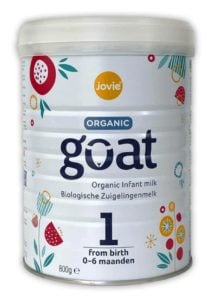
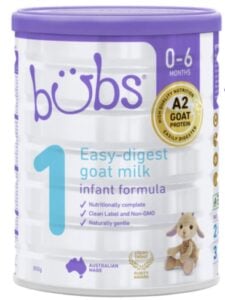
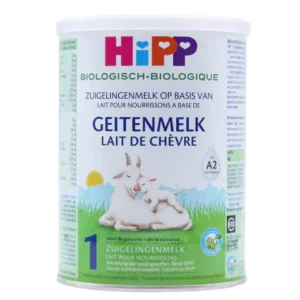
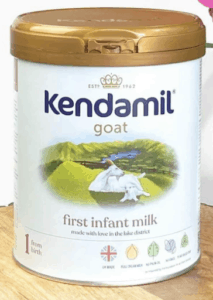
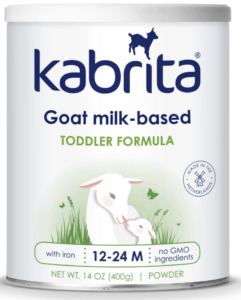
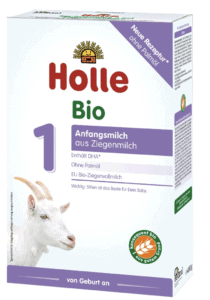
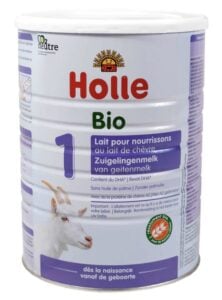
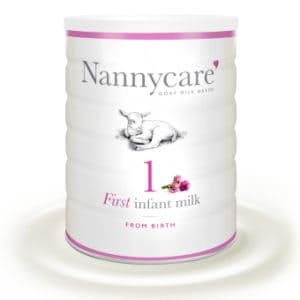
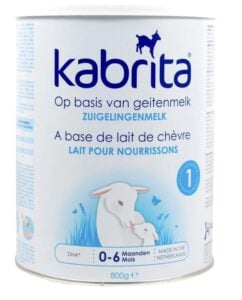
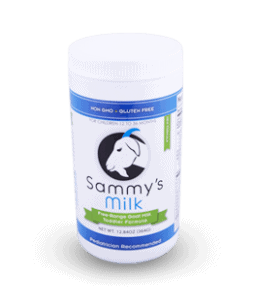


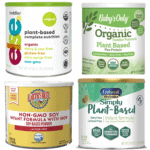




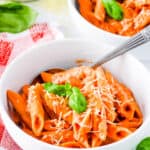

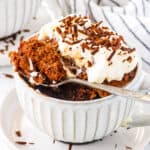


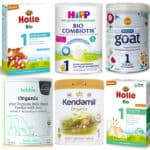



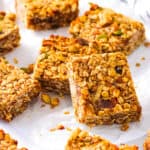




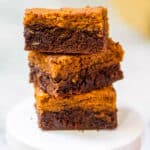


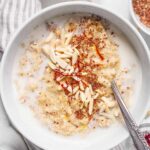
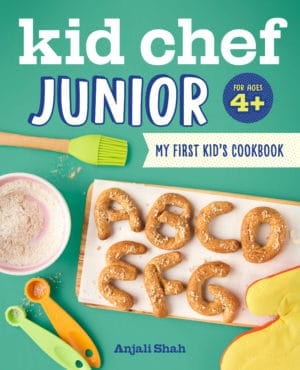


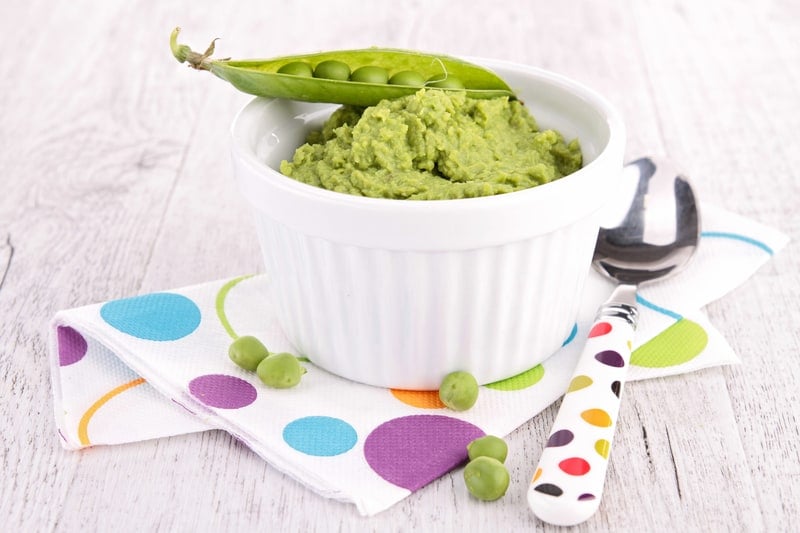
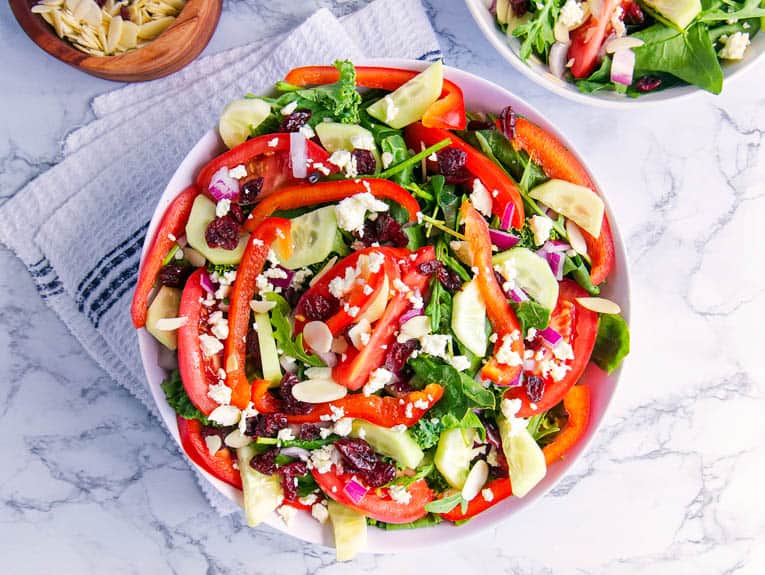


What would be your thoughts on Capri Care goatmilk formula?
Hi Jaymi! It actually looks like it has a pretty clean ingredients list! I like that it uses whole goat milk, and has no added sugars. It doesn’t look like it’s organic certified, but I read through their website and it looks like they essentially meet many organic standards. I’d say this is a good option if you have access to it!
Hello!
thank you for your reviews on goat formulas; I would be so grateful if you could do a review of the Pure Goat milk formula. I cannot seem to find much information on it and it seems like a great choice as well and it is what i have available in my area so I would love to know your thoughts.
https://puregoatcompany.com/en/
thank you!
Thanks for reaching out! I hadn’t heard of Pure Goat milk formula before but it looks awesome! Organic, no palm oil, super clean ingredients. I would totally recommend that an option for anyone looking for a goat milk formula for their baby 🙂
Hi! I’ve been giving my 6m old Bubs goat for the past 2 months. I recently saw a study done on MomacrossAmerica that tested for high aluminum in the milk. I know Bubs has a Clean Label award, but apparently they don’t test for aluminum? Do you have any insight on this. Would love to not worry!! Thank you!
Hi Sarah! I’m actually not sure if the Clean Label project tests for aluminum – I know they test for all heavy metals, but they don’t specify a list on their website so I can’t say for sure whether aluminum is included. But honestly, I don’t really trust MomsAcrossAmerica as a legitimate source of information. And from a heavy metals testing standpoint – I don’t have any visibility into what type of lab they use, whether it’s a 3rd party accredited lab or if they’re doing the testing themselves, etc. And I haven’t seen any reports from legitimate sources like the FDA, or Consumer Reports, or anything else that shows high levels of aluminum in Bubs. I would recommend reaching out to the Clean Label Project and asking them if they test for aluminum if you’re still concerned though! Hope that helps!
I would love to hear what you think about Growth Spurt Goat Milk Toddler Formula. I am trying to avoid seed oils. Thanks so much!!
Hi Rachel! The only downside to Growth Spurt formula is that it’s not suitable for infants and is not organic (it is non-GMO though so that’s a plus!). The rest of the ingredients look great!
Hi ! My baby is on Jovie stage 2 right now, but her poop is a bit thicker than breastmilk poop, i’m just wondering if Kendamil goat formula smells the same or more goaty than Jovie ? The smell of Jovie is actually not bad tho ! Thanks
Hi Thao! I have heard that they smell pretty similar, especially since they both use whole goat milk. But everyone’s preferences are different so you might find that one smells much stronger than the other! Jovie doesn’t have the same whey:casein ratio as breastmilk, which could be why your baby’s poop is a bit thicker than breastmilk (the increased casein in goat milk can cause more “solid” poop). Kendamil on the other hand, does have a similar whey:casein ratio as breastmilk, so that could be a reason to switch to see if Kendamil will help your baby’s poops become the right consistency! Hope that helps!
Hi Anjali,
So my daughter got diagnosed with bad eczema. I changed all of our household products to nontoxic options and I’ve tried every topical under the sun. I tried the Hipp HA for the past 3 weeks it definitely helped a bit compared to the Hipp Dutch she was on before but I would like to try a goat formula and see if that clears it. Between Jovie goat and HiPP Goat Dutch do you think one is superior? Do I need to worry about green washing with Jovie? Is the ratio better with HiPP?
Hi Callais! I’m so sorry to hear that – eczema is the worst! I’d say between Jovie and HiPP Goat – they’re actually pretty comparable. I might go with HiPP Dutch Goat because it’s cheaper than Jovie, and should have a whey:casein ratio closer to breastmilk than Jovie (still won’t be the 60:40 ratio but I believe it is slightly closer to breastmilk than Jovie is. Hope that helps!
Hi Anjali! I’ve read so many mixed things about goat milk working for babies with CMPA. Do you have any insight into this? Thinking of trying it out with my CMPA baby.
Hi Jami! It honestly really depends on the baby and the severity of the CMPA. Some babies with CMPA absolutely cannot tolerate goat milk formula at all, while other babies have a mild milk protein sensitivity or an A1 protein issue, and so A2 formula milk (which is what goat milk is) works for them. Goat milk formula still has milk protein, so if your baby is super sensitive to all milk proteins — A1 and A2 protein, they likely won’t do well on goat milk. What I would do is ask your pediatrician whether they think your baby’s allergy is too severe for goat milk or whether they think your baby is only sensitive to A1 milk protein and not the A2 protein. If your pediatrician thinks goat milk formula may work, then it’s worth a try for sure! Hope that helps!
My baby has MSPI and is doing great on Jovie. As you can imagine pediatricians don’t have direct experience with babies trying goat because there aren’t any US formulas for infants. I am in some FB groups and it’s mixed whether goat works or not. It does work for my baby and some others, but some have had pretty severe reactions. I would say if your allergy/intolerance symptoms are GI only it might be worth trying. If your allergy/intolerance symptoms include hives, breathing issues, etc. then you would probably need to be cleared by an allergist for goat milk and there is a high chance it won’t work. Free to Feed is a good resource I used while deciding which formula to trial. They told me given my babies symptoms (GI only), I could try slowly introducing it.
This is super helpful, thank you for sharing your experience here!
Hello,
Your research has helped so much! Thank you! I wondered how you feel about the new formula on Organic’s Best website called Be’be’ M?
Hi Rebekah! Thanks so much for your kind words – glad my blog has been helpful to you! To your question – Bebe M can be a good option if you need a non-milk-based formula or a vegan formula. It does have to use maltodextrin as one of the main ingredients (to replace the missing lactose from milk), so it’s only a healthier option if 1) your pediatrician recommends a rice based formula and is ok with you using that for your child and 2) your child can’t tolerate dairy or you’re needing a vegan formula. Hope that helps, let me know if you have any other questions!
Best organic goat milk formula for reflux?
Hi Allison! Unfortunately there isn’t a specific goat milk anti-reflux formula, the way HiPP AR is formulated as an anti-reflux cow’s milk formula. I’d recommend just trying one of the formulas on this list – maybe starting with Jovie and seeing if it works for your little one!
How do you know that Jovie goat formula has a good whey to casein ratio?
Hi Natasha! I spoke to the distributors of Jovie and they confirmed that the whey:casein ratio of the formula is closer to breastmilk than other goat milk formulas. Hope that helps!
My baby is 9month old and currently on Hollie goat stage 1 and when we transition her to stage 2 she started drinking less and whilst her poop looks ok she started developing horrendous cradle cap. I noticed there’s maltodextrin in the ingredient could that have caused an imbalance of bacteria in her gut or inflammation? What other formula would you recommend as she have a history of eczema reacting to corn, rice, wheat, yeast etc
Hi Missy! If your baby isn’t doing well on Holle Goat Stage 2, I’d try Jovie Stage 2 as it’s super gentle and does not contain maltodextrin. If you need a cheaper option, I’d try HiPP Goat Stage 2! Hope that helps!
Hi,
I am expecting my sixth child in a few months. Because of my own autoimmune issues I have had to formula feed all of my kids. I have always started them on European cows’ formula but that all end up reacting to it with frequent runny diapers. At that point I typically switch them to Kabrita which works WONDERFULLY– whatever it is about Kabrita just really agrees with my kids’ systems. But I’d like to have that higher European standard in terms of ingredients so I usually kind of bounce back and forth trying to switch them back to a European formula when their tummies seem less sensitive. Anyway, I would prefer not to go through all that and just start right off the bat with something that works. So, of the European goat formulas which would you say is MOST like Kabrita in terms of its constitution and ratios? For what it’s worth, I did try Holle Goat and it also did NOT settle as well as Kabrita. Like I said, my kids have historically had RUNNY diapers, rather than constipation and all the European cows’ milk (and Holle Goat) seems to eventually cause this. I recognize that this baby could be different, but after a trend this consistent, I am assuming she’s likely to be the same!
Hi Elizabeth! Holle Goat is known for causing constipation in babies because its whey:casein formula doesn’t mimic infant breastmilk the way most other formulas do – so I’m not surprised that it caused constipation with your kids! I’d say either Jovie Goat or Loulouka Goat is the closest to Kabrita – so I’d try one of those first. Hope that helps!
My son was on Holle Infant Goats Milk but it made him constipated. I want to do the Kendamil but I honestly can’t afford it. What other goat milk formulas do you recommend for babies prone to constipation and gas?
Hi Shannon! I’m not surprised about your experience with Holle Goat – it doesn’t have a whey:casein ratio that matches breastmilk so it can constipate babies. I would try Loulouka Goat which is more affordable than Kendamil Goat and pretty comparable in ingredients! Hope that helps!
We have been using Holle goat and my daughter is constipated. It also contains maltodextrin and folic acid not folate. We are switching to Kendamil goat today. I thought it was one of the best. Now I’m wondering if I should have ordered loulaka or jovie ?? Is Kendamil not as good?
Switching away from Holle Goat is a great idea! Kendamil Goat is still a really high quality formula and better than Holle Goat. Jovie and Loulouka are just certified organic, while Kendamil is not – that is the main difference between them. But Kendamil is red tractor certified so it’s still a great option! If your baby does well on it and your pediatrician is comfortable with the formula, I’d just stick with Kendamil. Hope that helps!
Hi,
Our almost 10 month old has been on Kendamil Goat for a long time and had very runny poops. We switched her to Jovi about three weeks ago since we weren’t able to get Kendamil. She has become very constipated and cries when she poops. We started giving her prune juice and that has helped. I was wondering do you know what could be causing her to be so constipated? We haven’t changed anything else regarding her food or water intake. I am wondering if I should try Loulouka goat? I don’t want to keep switching her formulas but I don’t want her to be so constipated or dependent on prune juice either. I would really appreciate your insight and suggestions. Thank you!
Hi Alma! I’m so sorry to hear about your 10 month old’s tummy troubles! Jovie really shouldn’t be constipating because it has a whey:casein ratio similar to breastmilk – but maybe your baby doesn’t tolerate goat milk in general? You should definitely try Loulouka Goat – when you switch her, just do it slowly over a period of 1-2 weeks. And hopefully that helps! If Loulouka Goat doesn’t work out, I would try a cow’s milk or a hypoallergenic formula because it could be the goat milk that isn’t working for her. Let me know if you have any other questions and I hope you find something that works soon!